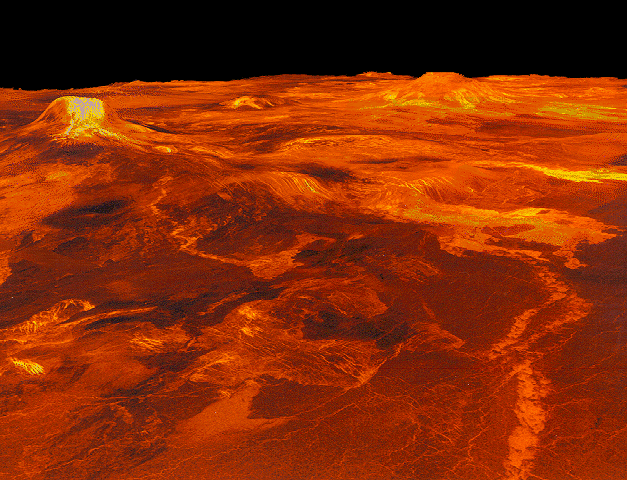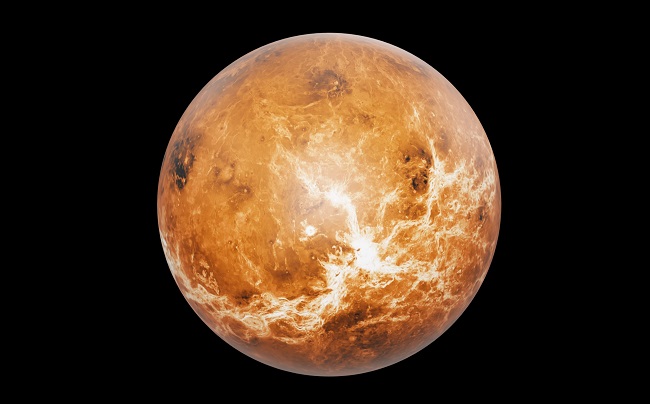Exploring Venus: The Ancient Quest for Extraterrestrial Life
Introduction
Venus, Earth’s closest planetary neighbor, has long been a subject of fascination for astronomers and dreamers alike. Its radiant appearance in the morning and evening skies has earned it the nickname “the Morning Star” or “the Evening Star.” Throughout history, Venus has captivated human imagination, and one of the most intriguing aspects of this enigmatic planet has been the possibility of extraterrestrial life. In this exploration, we delve into the historical quest for life on Venus, uncovering the ancient astronomers’ relentless curiosity and their pursuit of evidence for life beyond Earth.
1.1 Venus: Earth‘s Enigmatic Neighbor
Venus, the second planet from the Sun, is a fascinating celestial body that bears several striking resemblances to our beloved home planet. In terms of size and composition, Venus is remarkably similar to Earth, which has captivated the imagination of early astronomers and sparked the tantalizing possibility that it could potentially serve as a suitable habitat for various forms of life.
1.2 The Historical Significance of Venus
The study of Venus holds immense historical significance, as it not only reveals the evolution of human understanding of the cosmos and the relentless quest to unravel the mysteries of the universe, but also provides valuable insights into the cultural and scientific advancements of ancient civilizations. By examining the observations and theories related to Venus throughout different time periods, we can trace the development of astronomical knowledge and the impact it had on shaping our perception of the celestial bodies. Furthermore, the study of Venus allows us to appreciate the remarkable achievements of astronomers, mathematicians, and philosophers who dedicated their lives to uncovering the secrets of the cosmos, paving the way for future scientific discoveries and technological advancements.
Early Observations of Venus
Early astronomers, who were fascinated by the celestial wonders, observed Venus with awe and wonder. They meticulously documented its intricate movements and distinct characteristics, firmly convinced that unraveling its mysteries could potentially provide valuable insights into the possibility of extraterrestrial life beyond the confines of our planet.
2.1 Ancient Astronomers’ Fascination with Venus
Civilizations throughout history, including the Babylonians, Mayans, and Greeks, have long been captivated by the celestial body known as Venus. This captivating planet’s luminosity and unique phases have not only intrigued early skywatchers, but also played a significant role in shaping the mythologies and calendars of these ancient civilizations. From the Babylonians’ meticulous observations to the Mayans’ sophisticated astronomical systems, Venus has left an indelible mark on the cultural and scientific pursuits of these remarkable civilizations.
2.2 Misconceptions and Mysteries Surrounding Venus
While early astronomers made valuable observations of Venus, they also held several misconceptions about the planet. One of these misconceptions was based on the geocentric model of the universe, which positioned Earth at its center. According to this model, Venus was believed to revolve around Earth, just like the other celestial bodies. However, we now know that this geocentric model was inaccurate and that Venus, like other planets, orbits around the Sun. Despite their misconceptions, the early astronomers’ observations of Venus still provided valuable insights into its characteristics and behavior in the night sky.
The Search for Life Beyond Earth
The ancient quest for life beyond Earth was driven by the strong conviction that celestial bodies, such as Venus, might possibly be inhabited by extraterrestrial beings. This section delves into the fascinating world of the pioneers of ancient astrobiology, who ardently explored the concept of Venus as a potential abode teeming with diverse forms of life yet to be discovered by humanity.
3.1 The Pioneers of Ancient Astrobiology
Visionaries like Giordano Bruno and William Herschel were among the first to propose the existence of extraterrestrial life. They believed that our universe is teeming with life beyond Earth, and that Venus, with its similar size and proximity to the Sun, could potentially be home to a wide range of fascinating organisms. These early thinkers saw Venus as a planet with a thick atmosphere, possibly capable of supporting life forms that thrive in extreme conditions. Their groundbreaking ideas sparked a new wave of curiosity and exploration, leading scientists to further investigate the possibility of life on other planets within our own solar system and beyond.
3.2 Venus as a Potential Abode of Life
Early astronomers were fascinated by the possibility of Venus having a habitable environment. Their speculations varied, with some suggesting that Venus could potentially possess vast oceans and continents, making it a world similar to our own. On the other hand, there were those who entertained the idea that Venus might harbor exotic and unknown life forms, adding an element of mystery to this celestial body.

Challenges and Limitations
Despite their pioneering spirit, ancient astronomers faced significant challenges and limitations in their quest to understand the mysterious planet Venus and its potential for harboring diverse forms of life. These dedicated scientists were driven by an insatiable curiosity to unravel the enigmatic nature of Venus and explore the possibility of extraterrestrial life. Through meticulous observations and rigorous calculations, they endeavored to decipher the complex atmospheric conditions, geological features, and potential habitable zones of Venus. However, their efforts were hindered by the lack of advanced technology and limited access to accurate data, which restricted their ability to delve deeper into the mysteries of this captivating planet. Nonetheless, their tireless pursuit of knowledge laid the foundation for future generations of astronomers, who would build upon their findings and eventually unlock the secrets of Venus.
4.1 Venus’ Harsh Environment
Modern exploration has provided us with valuable insights into the inhospitable environment of Venus. It is characterized by extreme temperatures, reaching up to 900 degrees Fahrenheit (475 degrees Celsius), which is hotter than the surface of Mercury. Additionally, Venus has an incredibly dense atmosphere with a pressure that is about 92 times greater than Earth’s atmospheric pressure. This high atmospheric pressure creates a greenhouse effect on Venus, trapping heat and making it even hotter. Moreover, the atmosphere of Venus is composed mainly of carbon dioxide, with clouds of sulfuric acid, creating a toxic and corrosive environment. These challenging conditions on Venus make it highly unlikely to support any form of life as we know it.
4.2 The Geocentric Model’s Influence
The geocentric model, which held Earth as the center of the universe, greatly influenced early interpretations of Venus. This model, with its belief in Earth’s central position, not only shaped but also limited the understanding of the planet’s true nature. By attributing a privileged status to Earth and placing it at the center of the cosmos, astronomers of the time were unable to fully grasp the complexities and intricacies of Venus. As a result, their interpretations were constrained by the geocentric model, preventing them from gaining a more accurate understanding of the planet’s true characteristics and behavior.
Legacy and Modern Understanding
Over the course of history, our understanding and awareness of Venus have undergone significant advancements and transformations. Through the lens of modern science, we have gained invaluable insights into the true nature of Venus, thus dispelling numerous unfounded beliefs and misunderstandings that were prevalent in the past.
5.1 Venus’ True Nature Unveiled
Space missions have played a crucial role in expanding our knowledge about Venus. For instance, NASA’s Magellan and the Soviet Union’s Venera program have been instrumental in providing us with detailed insights into the environment of this mysterious planet. Through these missions, scientists have discovered fascinating facts about Venus, such as its scorching surface temperatures, the presence of acidic clouds in its atmosphere, and even its volcanic activity. These discoveries have not only deepened our understanding of Venus but have also opened up new avenues of research and exploration in the field of planetary science.
5.2 Astrobiology Today: Exoplanets and Beyond
While Venus may not host life as once imagined, the search for extraterrestrial life continues to captivate the scientific community. In recent years, astrobiology has expanded its horizons, venturing beyond our solar system to explore distant exoplanets and moons. These cosmic bodies are believed to hold the potential for harboring life-sustaining environments, providing valuable insights into the possibility of life existing beyond the confines of our home planet. With cutting-edge technology and innovative research methods, scientists are tirelessly working to unravel the mysteries of the cosmos and uncover the secrets of life in the universe.
Conclusion
The quest for life on Venus, as pursued by ancient astronomers, is not only a testament to human curiosity and the enduring desire to uncover the mysteries of the cosmos, but it also serves as a reminder of how our understanding of the universe has evolved over time. Despite the inhospitable conditions on Venus, its historical significance cannot be overstated. The lessons learned from studying this fascinating planet have not only shaped our knowledge of the solar system but have also provided invaluable insights into the possibilities of life beyond our home planet. As we continue to explore the vast expanse of the universe, the quest for life on Venus serves as a constant source of inspiration, driving us to push the boundaries of our knowledge and to seek answers to the fundamental questions about our place in the cosmos.







